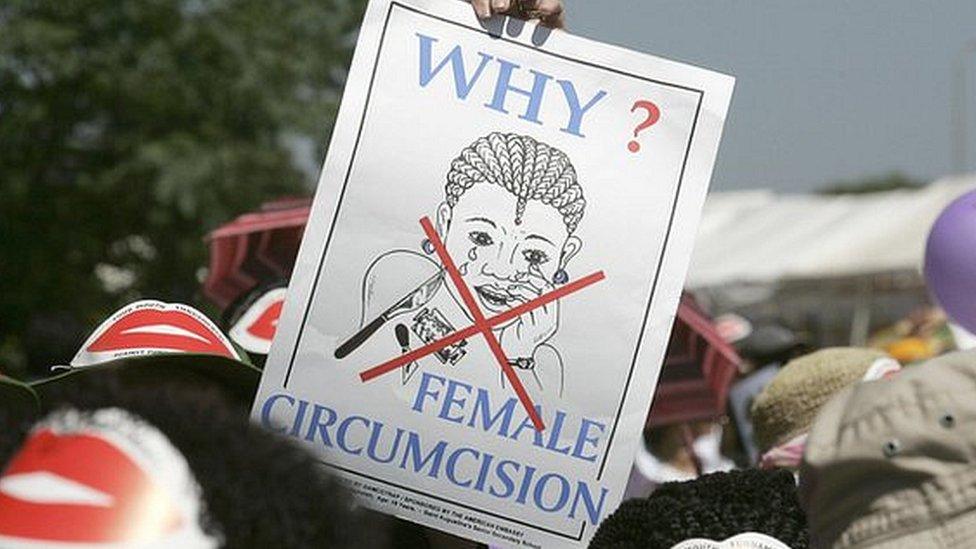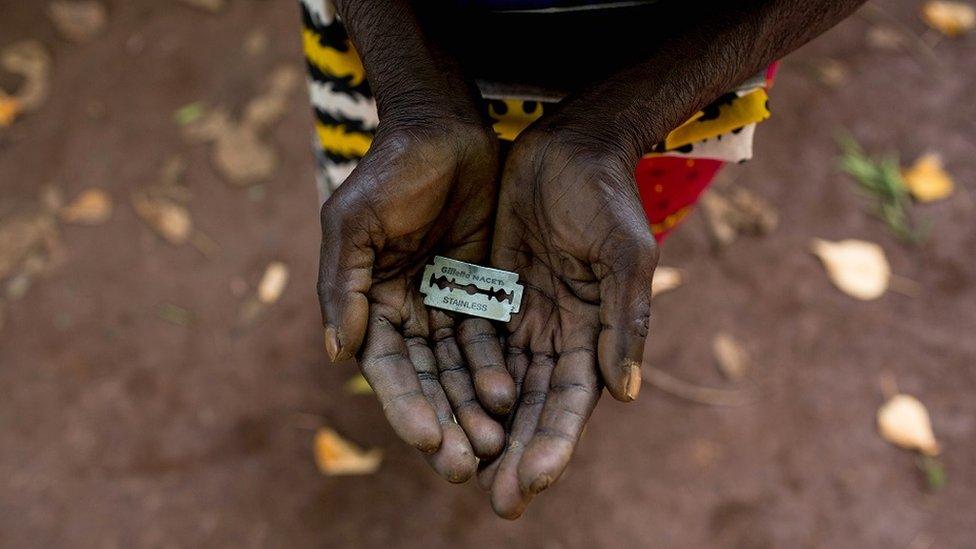Female genital mutilation: Parents arrested after death of girl in Egypt
- Published
This education video aims to change views of FGM in Egypt, reports Orla Guerin
Police in Egypt have arrested the parents and aunt of a 14-year-old girl who died while undergoing female genital mutilation (FGM).
The doctor who allegedly performed the procedure in the province of Asyut was also held.
All four were detained after the victim's uncle alerted the authorities, officials told the BBC.
FGM was banned in Egypt in 2008 but the country still has one of the highest rates of the practice in the world.
According to the UN children's agency, Unicef, 87% of girls and women aged 15 to 49 years in Egypt have undergone FGM, with 50% of Egyptians believing it "is a religious requirement".
In the latest case, Nada Abdul Maksoud suffered complications after the surgery at a private clinic in the Upper Egyptian governorate of Asyut, the Shorouk News website reported.
The girl's death caused an outcry from rights groups in Egypt.
The National Council for Childhood and Motherhood and the National Council for Women urged authorities to prosecute those responsible, the state-run website Akhbar el-Yom said.
Egypt criminalised FGM in 2008 and increased penalties for those carrying out the procedures in 2016 following the death of a teenage girl.

What is female genital mutilation?
FGM includes procedures that alter or injure female genital organs for non-medical reasons. It often involves the removal or cutting of the labia and clitoris
More than 200 million girls and women worldwide are living with the consequences of FGM
Dangers include severe bleeding, problems urinating, infections, infertility and increased risk of newborn deaths in childbirth
The practice is mainly carried out by traditional circumcisers, who play other central roles in communities
It is mostly carried out on young girls between infancy and age 15
It is practised by both Muslims and Christians in a number of African countries and in parts of the Middle East
Source: World Health Organization
It’s estimated one in 20 girls and women in the world have undergone some form of FGM
- Published29 July 2016

- Published6 February 2019
